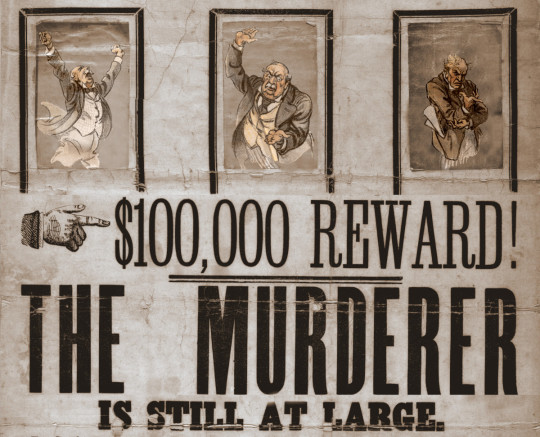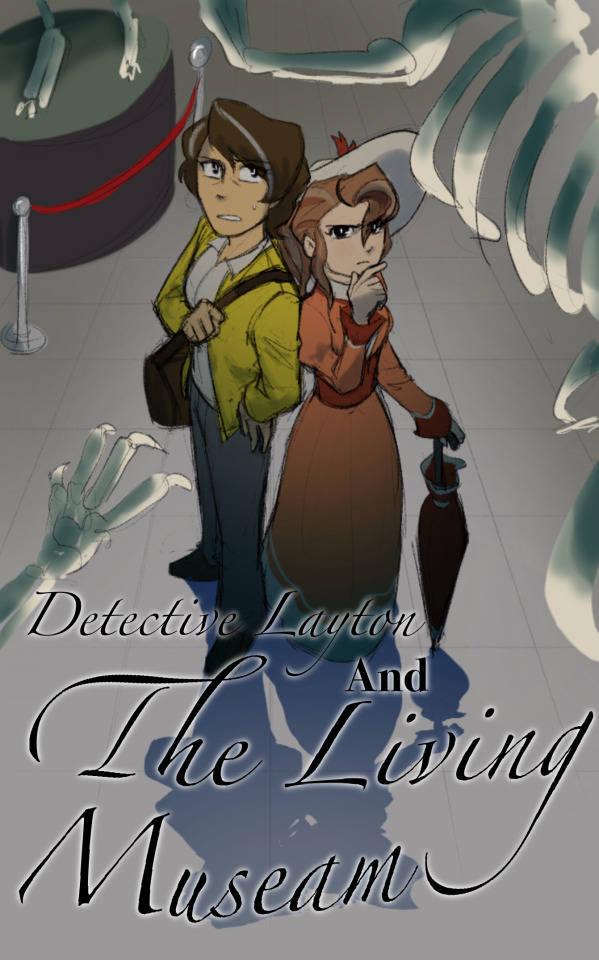#structural separation
Explore tagged Tumblr posts
Text
They were warned

Picks and Shovels is a new, standalone technothriller starring Marty Hench, my two-fisted, hard-fighting, tech-scam-busting forensic accountant. You can pre-order it on my latest Kickstarter, which features a brilliant audiobook read by Wil Wheaton.

Truth is provisional! Sometimes, the things we understand to be true about the world change, and stuff we've "always done" has to change, too. There comes a day when the evidence against using radium suppositories is overwhelming, and then you really must dig that radium out of your colon and safely dispose of it:
https://pluralistic.net/2024/09/19/just-stop-putting-that-up-your-ass/#harm-reduction
So it's natural and right that in the world, there will be people who want to revisit the received wisdom and best practices for how we live our lives, regulate our economy, and organize our society. But not a license to simply throw out the systems we rely on. Sure, maybe they're outdated or unnecessary, but maybe not. That's where "Chesterton's Fence" comes in:
Let us say, for the sake of simplicity, a fence or gate erected across a road. The more modern type of reformer goes gaily up to it and says, "I don't see the use of this; let us clear it away." To which the more intelligent type of reformer will do well to answer: "If you don't see the use of it, I certainly won't let you clear it away. Go away and think. Then, when you can come back and tell me that you do see the use of it, I may allow you to destroy it."
https://en.wikipedia.org/wiki/G._K._Chesterton#Chesterton's_fence
In other words, it's not enough to say, "This principle gets in the way of something I want to do, so let's throw it out because I'm pretty sure the inconvenience I'm experiencing is worse than the consequences of doing away with this principle." You need to have a theory of how you will prevent the harms the principle protects us from once you tear it down. That theory can be "the harms are imaginary" so it doesn't matter. Like, if you get rid of all the measures that defend us from hexes placed by evil witches, it's OK to say, "This is safe because evil witches aren't real and neither are hexes."
But you'd better be sure! After all, some preventative measures work so well that no living person has experienced the harms they guard us against. It's easy to mistake these for imaginary or exaggerated. Think of the antivaxers who are ideologically committed to a world in which human beings do not have a shared destiny, meaning that no one has a moral claim over the choices you make. Motivated reasoning lets those people rationalize their way into imagining that measles – a deadly and ferociously contagious disease that was a scourge for millennia until we all but extinguished it – was no big deal:
https://en.wikipedia.org/wiki/Measles:_A_Dangerous_Illness
There's nothing wrong with asking whether longstanding health measures need to be carried on, or whether they can be sunset. But antivaxers' sloppy, reckless reasoning about contagious disease is inexcusable. They were warned, repeatedly, about the mass death and widespread lifelong disability that would follow from their pursuit of an ideological commitment to living as though their decisions have no effect on others. They pressed ahead anyway, inventing ever-more fanciful reasons why health is a purely private matter, and why "public health" was either a myth or a Communist conspiracy:
https://www.conspirituality.net/episodes/brief-vinay-prasad-pick-me-campaign
When RFK Jr kills your kids with measles or permanently disables them with polio, he doesn't get to say "I was just inquiring as to the efficacy of a longstanding measure, as is right and proper." He was told why the vaccine fence was there, and he came up with objectively very stupid reasons why that didn't matter, and then he killed your kids. He was warned.
Fuck that guy.
Or take Bill Clinton. From 1933 until 1999, American banks were regulated under the Glass-Steagall Act, which "structurally separated" them. Under structural separation, a "retail bank" – the bank that holds your savings and mortgage and provides you with a checkbook – could not be "investment bank." That meant it couldn't own or invest in businesses that competed with the businesses its depositors and borrowers ran. It couldn't get into other lines of business, either, like insurance underwriting.
Glass-Steagall was a fence that stood between retail banks and the casino economy. It was there for a fucking great reason: the failure to structurally separate banks allowed them to act like casinos, inflating a giant market bubble that popped on Black Friday in October 1929, kicking off the Great Depression. Congress built the structural separation fence to keep banks from doing it again.
In the 1990s, Bill Clinton agitated for getting rid of Glass-Steagall. He argued that new economic controls would allow the government to prevent another giant bubble and crash. This time, the banks would behave themselves. After all, hadn't they demonstrated their prudence for seven decades?
In fact, they hadn't. Every time banks figured out how to slip out of regulatory constraints they inflated another huge bubble, leading to another massive crash that made the rich obscenely richer and destroyed ordinary savers' lives. Clinton took office just as one of these finance-sector bombs – the S&L Crisis – was detonating. Clinton had no basis – apart from wishful thinking – to believe that deregulating banks would lead to anything but another gigantic crash.
But Clinton let his self interest – in presiding over a sugar-high economic expansion driven by deregulation – overrule his prudence (about the crash that would follow). Sure enough, in the last months of Clinton's presidency, the stock market imploded with the March 2000 dot-bomb. And because Congress learned nothing from the dot-com crash and declined to restore the Glass-Steagall fence, the crash led to another bubble, this time in subprime mortgages, and then, inevitably, we suffered the Great Financial Crisis.
Look: there's no virtue in having bank regulations for the sake of having them. It is conceptually possible for bank regulations to be useless or even harmful. There's nothing wrong with investigating whether the 70-year old Glass-Steagall Act was still needed in 1999. But Clinton was provided with a mountain of evidence about why Glass-Steagall was the only thing standing between Americans and economic chaos, including the evidence of the S&L Crisis, which was still underway when he took office, and he ignored all of them. If you lost everything – your home, your savings, your pension – in the dot-bomb or the Great Financial Crisis, Bill Clinton is to blame. He was warned. he ignored the warnings.
Fuck that guy.
No, seriously, fuck Bill Clinton. Deregulating banks wasn't Clinton's only passion. He also wanted to ban working cryptography. The cornerstone of Clinton's tech policy was the "Clipper Chip," a backdoored encryption chip that, by law, every technology was supposed to use. If Clipper had gone into effect, then cops, spooks, and anyone who could suborn, bribe, or trick a cop or a spook could break into any computer, server, mobile device, or embedded system in America.
When Clinton was told – over and over, in small, easy-to-understand words – that there was no way to make a security system that only worked when "bad guys" tried to break into it, but collapsed immediately if a "good guy" wanted to bypass it. We explained to him – oh, how we explained to him! – that working encryption would be all that stood between your pacemaker's firmware and a malicious update that killed you where you stood; all that stood between your antilock brakes' firmware and a malicious update that sent you careening off a cliff; all that stood between businesses and corporate espionage, all that stood between America and foreign state adversaries wanting to learn its secrets.
In response, Clinton said the same thing that all of his successors in the Crypto Wars have said: NERD HARDER! Just figure it out. Cops need to look at bad guys' phones, so you need to figure out how to make encryption that keeps teenagers safe from sextortionists, but melts away the second a cop tries to unlock a suspect's phone. Take Malcolm Turnbull, the former Australian Prime Minister. When he was told that the laws of mathematics dictated that it was impossible to build selectively effective encryption of the sort he was demanding, he replied, "The laws of mathematics are very commendable but the only law that applies in Australia is the law of Australia":
https://www.eff.org/deeplinks/2017/07/australian-pm-calls-end-end-encryption-ban-says-laws-mathematics-dont-apply-down
Fuck that guy. Fuck Bill Clinton. Fuck a succession of UK Prime Ministers who have repeatedly attempted to ban working encryption. Fuck 'em all. The stakes here are obscenely high. They have been warned, and all they say in response is "NERD HARDER!"
https://pluralistic.net/2023/03/05/theyre-still-trying-to-ban-cryptography/
Now, of course, "crypto means cryptography," but the other crypto – cryptocurrency – deserves a look-in here. Cryptocurrency proponents advocate for a system of deregulated money creation, AKA "wildcat currencies." They say, variously, that central banks are no longer needed; or that we never needed central banks to regulate the money supply. Let's take away that fence. Why not? It's not fit for purpose today, and maybe it never was.
Why do we have central banks? The Fed – which is far from a perfect institution and could use substantial reform or even replacement – was created because the age of wildcat currencies was a nightmare. Wildcat currencies created wild economic swings, massive booms and even bigger busts. Wildcat currencies are the reason that abandoned haunted mansions feature so heavily in the American imagination: American towns and cities were dotted with giant mansions built by financiers who'd grown rich as bubbles expanded, then lost it all after the crash.
Prudent management of the money supply didn't end those booms and busts, but it substantially dampened them, ending the so-called "business cycle" that once terrorized Americans, destroying their towns and livelihoods and wiping out their savings.
It shouldn't surprise us that a new wildcat money sector, flogging "decentralized" cryptocurrencies (that they are nevertheless weirdly anxious to swap for your gross, boring old "fiat" money) has created a series of massive booms and busts, with insiders getting richer and richer, and retail investors losing everything.
If there was ever any doubt about whether wildcat currencies could be made safe by putting them on a blockchain, it is gone. Wildcat currencies are as dangerous today as they were in the 18th and 19th century – only moreso, since this new bad paper relies on the endless consumption of whole rainforests' worth of carbon, endangering not just our economy, but also the habitability of the planet Earth.
And nevertheless, the Trump administration is promising a new crypto golden age (or, ahem, a Gilded Age). And there are plenty of Democrats who continue to throw in with the rotten, corrupt crypto industry, which flushed billions into the 2024 election to bring Trump to office. The result is absolutely going to be more massive bubbles and life-destroying implosions. Fuck those guys. They were warned, and they did it anyway.
Speaking of the climate emergency: greetings from smoky Los Angeles! My city's on fire. This was not an unforeseeable disaster. Malibu is the most on-fire place in the world:
https://longreads.com/2018/12/04/the-case-for-letting-malibu-burn/
Since 1919, the region has been managed on the basis of "total fire suppression." This policy continued long after science showed that this creates "fire debt" in the form of accumulated fuel. The longer you go between fires, the hotter and more destructive those fires become, and the relationship is nonlinear. A 50-year fire isn't 250% more intense than a 20-year fire: it's 50,000% more intense.
Despite this, California has invested peanuts in regular controlled burns, which has created biennial uncontrolled burns – wildfires that cost thousands of times more than any controlled burn.
Speaking of underinvestment: PG&E has spent decades extracting dividends for its investors and bonuses for its execs, while engaging in near-total neglect of maintenance of its high-voltage transmission lines. Even with normal winds, these lines routinely fall down and start blazes.
But we don't have normal winds. The climate emergency has been steadily worsening for decades. LA is just the latest place to be on fire, or under water, or under ice, or baking in wet bulb temperatures. Last week in southern California, we were warned to expect gusts of 120mph.
They were warned. #ExxonKnew: in the early 1970s, Exxon's own scientists warned them that fossil fuel consumption would kick off climate change so drastic that it would endanger human civilzation. Exxon responded by burying the reports and investing in climate denial:
https://exxonknew.org/
They were warned! Warned about fire debt. Warned about transmission lines. Warned about climate change. And specific, named people, who individually had the power to heed these warnings and stave off disaster, ignored the warnings. They didn't make honest mistakes, either: they ignored the warnings because doing so made them extraordinarily, disgustingly rich. They used this money to create dynastic fortunes, and have created entire lineages of ultra-wealthy princelings in $900,000 watches who owe it all to our suffering and impending dooml
Fuck those guys. Fuck 'em all.
We've had so many missed opportunities, chances to make good policy or at least not make bad policy. The enshitternet didn't happen on its own. It was the foreseeable result of choices – again, choices made by named individuals who became very wealthy by ignoring the warnings all around them.
Let's go back to Bill Clinton, because more than anyone else, Clinton presided over some terrible technology regulations. In 1998, Clinton signed the Digital Millennium Copyright Act, a bill championed by Barney Frank (fuck that guy, too). Under Section 1201 of the Digital Millennium Copyright Act, it's a felony, punishable by a five year prison sentence, and a $500,000 fine, to tamper with a "digital lock."
That means that if HP uses a digital lock to prevent you from using third-party ink, it's a literal crime to bypass that lock. Which is why HP ink now costs $10,000/gallon, and why you print your shopping lists with colored water that costs more, ounce for ounce, than the sperm of a Kentucky Derby winner:
https://pluralistic.net/2024/09/30/life-finds-a-way/#ink-stained-wretches
Clinton was warned that DMCA 1201 would soon metastasize into every kind of device – not just the games consoles and DVD players where it was first used, but medical implants, tractors, cars, home appliances – anything you could put a microchip into (Jay Freeman calls this "felony contempt of business-model"):
https://pluralistic.net/2023/07/24/rent-to-pwn/#kitt-is-a-demon
He ignored those warnings and signed the DMCA anyway (fuck that guy). Then, under Bush (fuck that guy), the US Trade Representative went all around the world demanding that America's trading partners adopt versions of this law (fuck that guy). In 2001, the European Parliament capitulated, enacting the EU Copyright Directive, whose Article 6 is a copy-paste of DMCA 1201 (fuck all those people).
Fast forward 20 years, and boy is there a lot of shit with microchips that can be boobytrapped with rent-extracting logic bombs that are illegal to research, describe, or disable.
Like choo-choo trains.
Last year, the Polish hacking group Dragon Sector was contacted by a public sector train company whose Newag trains kept going out of service. The operator suspected that Newag had boobytrapped the trains to punish the train company for getting its maintenance from a third-party contractor. When Dragon Sector investigated, they discovered that Newag had indeed riddled the trains' firmware with boobytraps. Trains that were taken to locations known to have third-party maintenance workshops were immediately bricked (hilariously, this bomb would detonate if trains just passed through stations near to these workshops, which is why another train company had to remove all the GPSes from its trains – they kept slamming to a halt when they approached a station near a third-party workshop). But Newag's logic bombs would brick trains for all kinds of reasons – merely keeping a train stationary for too many days would result in its being bricked. Installing a third-party component in a locomotive would also trigger a bomb, bricking the train.
In their talk at last year's Chaos Communications Congress, the Dragon Sector folks describe how they have been legally terrorized by Newag, which has repeatedly sued them for violating its "intellectual property" by revealing its sleazy, corrupt business practices. They also note that Newag continues to sell lots of trains in Poland, despite the widespread knowledge of its dirty business model, because public train operators are bound by procurement rules, and as long as Newag is the cheapest bidder, they get the contract:
https://media.ccc.de/v/38c3-we-ve-not-been-trained-for-this-life-after-the-newag-drm-disclosure
The laws that let Newag make millions off a nakedly corrupt enterprise – and put the individuals who blew the whistle on it at risk of losing everything – were passed by Members of the European Parliament who were warned that this would happen, and they ignored those warnings, and now it's happening. Fuck those people, every one of 'em.
It's not just European parliamentarians who ignored warnings and did the bidding of the US Trade Representative, enacting laws that banned tampering with digital locks. In 2010, two Canadian Conservative Party ministers in the Stephen Harper government brought forward similar legislation. These ministers, Tony Clement (now a disgraced sex-pest and PPE grifter) and James Moore (today, a sleazeball white-shoe corporate lawyer), held a consultation on this proposal.
6, 138 people wrote in to say, "Don't do this, it will be hugely destructive." 54 respondents wrote in support of it. Clement and Moore threw out the 6,138 opposing comments. Moore explained why: these were the "babyish" responses of "radical extremists." The law passed in 2012.
Last year, the Canadian Parliament passed bills guaranteeing Canadians the Right to Repair and the right to interoperability. But Canadians can't act on either of these laws, because they would have to tamper with a digital lock to do so, and that's illegal, thanks to Tony Clement and James Moore. Who were warned. And who ignored those warnings. Fuck those guys:
https://pluralistic.net/2024/11/15/radical-extremists/#sex-pest
Back in the 1990s, Bill Clinton had a ton of proposals for regulating the internet, but nowhere among those proposals will you find a consumer privacy law. The last time an American president signed a consumer privacy law was 1988, when Reagan signed the Video Privacy Protection Act and ensured that Americans would never have to worry that video-store clerks where telling the newspapers what VHS cassettes they took home.
In the years since, Congress has enacted exactly zero consumer privacy laws. None. This has allowed the out-of-control, unregulated data broker sector to metastasize into a cancer on the American people. This is an industry that fuels stalkers, discriminatory financial and hiring algorithms, and an ad-tech sector that lets advertisers target categories like "teenagers with depression," "seniors with dementia" and "armed service personnel with gambling addictions."
When the people cry out for privacy protections, Congress – and the surveillance industry shills that fund them – say we don't need a privacy law. The market will solve this problem. People are selling their privacy willingly, and it would be an "undue interference in the market" if we took away your "freedom to contract" by barring companies from spying on you after you clicked the "I agree" button.
These people have been repeatedly warned about the severe dangers to the American public – as workers, as citizens, as community members, and as consumers – from the national privacy free-for-all, and have done nothing. Fuck them, every one:
https://pluralistic.net/2023/12/06/privacy-first/#but-not-just-privacy
Now, even a stopped clock is right twice a day, and not every one of Bill Clinton's internet policies was terrible. He had exactly one great policy, and, ironically, that's the one there's the most energy for dismantling. That policy is Section 230 of the Communications Decency Act (a law that was otherwise such a dumpster fire that the courts struck it down). Chances are, you have been systematically misled about the history, use, and language of Section 230, which is wild, because it's exactly 26 words long and fits in a single tweet:
No provider or user of an interactive computer service shall be treated as the publisher or speaker of any information provided by another information content provider.
Section 230 was passed because when companies were held liable for their users' speech, they "solved" this problem by just blocking every controversial thing a user said. Without Section 230, there would be no Black Lives Matter, no #MeToo – no online spaces where the powerful were held to account. Meanwhile, rich and powerful people would continue to enjoy online platforms where they and their bootlickers could pump out the most grotesque nonsense imaginable, either because they owned those platforms (ahem, Twitter and Truth Social) or because rich and powerful people can afford the professional advice needed to navigate the content-moderation bureaucracies of large systems.
We know exactly what the internet looks like when platforms are civilly liable for their users' speech: it's an internet where marginalized and powerless people are silenced, and where the people who've got a boot on their throats are the only voices you can hear:
https://www.techdirt.com/2020/06/23/hello-youve-been-referred-here-because-youre-wrong-about-section-230-communications-decency-act/
The evidence for this isn't limited to the era of AOL and Prodigy. In 2018, Trump signed SESTA/FOSTA, a law that held platforms liable for "sex trafficking." Advocates for this law – like Ashton Kutcher, who campaigns against sexual assault unless it involves one of his friends, in which case he petitions the judge for leniency – were warned that it would be used to shut down all consensual sex work online, making sex workers's lives much more dangerous. This warnings were immediately borne out, and they have been repeatedly borne out every month since. Killing CDA 230 for sex work brought back pimping, exposed sex workers to grave threats to their personal safety, and made them much poorer:
https://decriminalizesex.work/advocacy/sesta-fosta/what-is-sesta-fosta/
It also pushed sex trafficking and other nonconsensual sex into privateforums that are much harder for law enforcement to monitor and intervene in, making it that much harder to catch sex traffickers:
https://cdt.org/insights/its-all-downsides-hybrid-fosta-sesta-hinders-law-enforcement-hurts-victims-and-speakers/
This is exactly what SESTA/FOSTA's advocates were warned of. They were warned. They did it anyway. Fuck those people.
Maybe you have a theory about how platforms can be held civilly liable for their users' speech without harming marginalized people in exactly the way that SESTA/FOSTA, it had better amount to more than "platforms are evil monopolists and CDA 230 makes their lives easier." Yes, they're evil monopolists. Yes, 230 makes their lives easier. But without 230, small forums – private message boards, Mastodon servers, Bluesky, etc – couldn't possibly operate.
There's a reason Mark Zuckerberg wants to kill CDA 230, and it's not because he wants to send Facebook to the digital graveyard. Zuck knows that FB can operate in a post-230 world by automating the deletion of all controversial speech, and he knows that small services that might "disrupt" Facebook's hegemony would be immediately extinguished by eliminating 230:
https://www.nbcnews.com/tech/tech-news/zuckerberg-calls-changes-techs-section-230-protections-rcna486
It's depressing to see so many comrades in the fight against Big Tech getting suckered into carrying water for Zuck, demanding the eradication of CDA 230. Please, I beg you: look at the evidence for what happens when you remove that fence. Heed the warnings. Don't be like Bill Clinton, or California fire suppression officials, or James Moore and Tony Clement, or the European Parliament, or the US Trade Rep, or cryptocurrency freaks, or Malcolm Turnbull.
Or Ashton fucking Kutcher.
Because, you know, fuck those guys.

Check out my Kickstarter to pre-order copies of my next novel, Picks and Shovels!

If you'd like an essay-formatted version of this post to read or share, here's a link to it on pluralistic.net, my surveillance-free, ad-free, tracker-free blog:
https://pluralistic.net/2025/01/13/wanting-it-badly/#is-not-enough
#pluralistic#we told you so#told you so#foreseeable outcomes#enshittification#crypto cars#cryto means cryptography#data brokers#cda 230#section 230#230#newag#drm#copyfight#section 1201#wildcat money#backdoors#wanting it badly is not enough#dragon sector#great financial crisis#structural separation#guillotine watch#nerd harder
321 notes
·
View notes
Text
they should invent an understanding and intellectualizing your feelings that makes them go away!!!
#like everything im feeling rn can be explained by 1. shortest day of the year 2. lack of structure and physical separation from my friends#3. my brand new anxiety and depression diagnoses#4. [redacted]#but im still feeling so wretched
31K notes
·
View notes
Text
A lot of the pro-veilguard arguments I see include a very specific way of viewing what “dark fantasy” is which misses the entire point as to why there are criticisms about the overall tone of the game.
Dark fantasy is not just “how much murder rape bigotry and overall suffering can we put in a story for the sake of doing so”.
It’s about having events and themes based off of the darker parts of reality and then, as the player, being able to do something about it. The general appeal is the catharsis. It’s about seeing these stories reflected through an interactive story in a meaningful, respectful, purposeful way.
Is dragon age the poster child for handling its complicated, real-life-inspired politics well? No. But veilguard was somehow worse. The bar was in hell and it still tripped flat on its face.
Veilguard’s lackadaisical, chronically ironic “well THAT just happened”, neutered writing and theme is not a good argument as to why this is a good dragon age game, and you can’t blame the dark fantasy genre for it.
#LIKE DOGS SHIANNI#ppl who have only played veilguard don’t know what the circles are#did you know that tevinter is the slavery capital of thedas and that it’s entire structure is based on brutal social tiers#hey quick question why are the dalish dalish?#what were the events that led to the separation between dalish and non-dalish elves?#why did solas rebel again? who did he create all those protected fortresses for?#why is his eluvian called the path to freedom?#remind me again why the mages rebelled?#tell me what the rite of tranquility is again?#remind me of orzammar’s basic politics again?#let’s talk about the FUCKING QUN#if veilguard has no haters then I’m dead#da4#dragon age#datv critical
617 notes
·
View notes
Text

Happy Pride !!
Hoodless version below cut

#kh#kingdom hearts#roxas#roxas kh#my art#i haven't played past com yet but once i got this idea it wouldn't leave#i struggled a lot with drawing the coat#specifically i had difficulties getting the form right#i started with drawing roxas' body as a “sketch” then i drew the coat on top#but when i drew within the bounds of his body the coat didn't have the angular shapes in the locations i wanted#the silhouette wasn't strong#and the coat appeared kinda lumpy#i wound up redoing the torso from scratch#the flags and poles were super fun to draw#i was originally going to place the keychain symbols on top#but once i finished the thalassa shell charm i realized i wanted to include the keychains separate from the actual structure of the pole#so i instead made the tops of the poles resemble the hilts of oblivion/oathkeeper#(honestly if keyblade-themed pride flags existed irl i'd get them in a heartbeat#it would be so cool!)#overall this drawing involved a lot of . reevaluating processes and redoing parts i wasn't satisfied with#but i think it turned out for the better! i'm really happy with how it came out
207 notes
·
View notes
Text

Detective Layton, Case 1: The Living Museum
Our story begins for our detective and her assistant at The Natural History Museum; reports are pouring in from visitors all over that the exhibits have come alive! Dinosaurs walking, artifacts randomly moving, and paintings blinking and melting before everyone's very eyes! Naturally, it's up to the Detective Layton and Emmy to solve the case once and for all. Can they solve the mystery of the Living Museum?!
(au info/flora | emmy)
(PLEASE IGNORE THE FACT I SPELLED MUSEUM WRONG IN THE PIC OK TAHNKS)
#mak art#mak draws pl#professor layton#rmj au#professor layton au#laytons mystery journey#lmj#flora reinhold#emmy altava#WOUGH.#HEY GUYS.#MAK IS BACK.#ITS BEEN. A HOT SECOND#my arm has greatly recovered now but im still not gonna push myself to much#. so sorry if this looks a little craptastic#wanted to kinda give a blurb for the first case of this AU before i introduce any new characters to the party#i've structured the au a little like lbmr#in which its one story with multiple cases instead of separate stories#something something pacing. i dunno#not sure if i draw the resolution + epilogue of this case first before i introduce another person#i'll see.
290 notes
·
View notes
Text
the thing is that i wouldn't put it past buddie to be so linked that they both end up at the conclusion of it all separately from each other but at the same time. and then they'll both go home to the house that they're living in together with the intention of confessing and go. i have something to share. and then the other one says, i also have something to share. and then they'll stand there like those couples that were planning to propose to each other on the same day
#buddie#for the record i still think buck realizes first but#it'd be a cute episode structure. something like confessions where they don't really talk a lot or at all#going on their separate journeys for 35 minutes and we get the parallels and the progress and the build up#and then they end up back on the couch together again. beer in hand and looking at each other like :)#because they each spent the day coming to the conclusion that this is it#**
144 notes
·
View notes
Text






How to not go crazy

#vbros#venture bros#the venture brothers#vb#dr girlfriend#dr mrs the monarch#pete white#the monarch#henchman 21#gary fischer#malcom fitzcarraldo#admin draws#fanart#stitching together some doodles done on the lcd tablet im using to practice structures. and so forth.#im gonna do a separate post with all that bullshit just to get it off my back + give everyone an idea of why im not posting rn
108 notes
·
View notes
Text
now that the show has made it explicitly Relevant that Milchick is a black man (and lumon racist) you really can't help but notice the parallels of dehumanization - the innies "aren't real people," he "shouldn't make them feel like real people," they serve only one purpose (work).... there's so much talk about the innies' exploitation as 'kids' but they're really driving home the image of them as slaves, too, this season (on both an intra- and extratextual level), and with the milchick storyline unfolding as it is i think those parallels are not lost on him. idk just really intriguing where they're taking this, probably him potentially switching 'sides' down the road - or trying, anyways, the grip lumon has on all of them is strong, in different ways
#severance#or maybe i just want him to become part of the uprising bc I LOVE HIM#but i also love him as an antagonist#ahh but milchick uprising#either way character of all time#i mean they ARE clearly setting up the sympathy between them in subtle ways#which could mean nothing#but also those slavery parallels are SUCH a fine line to walk ofc - there's no relativizing here#but at this point they're pushing it in our faces to notice#ALSO it's so interesting to see that the unsevered employees are also on such a 'tight leash'#does any employee in this company know anything?? they're just as controlled and separated from each other as the innies in some ways#the very structure of the company is built on fear and control#bit of a panopticon situation#the mr milchick and ms cobel storylines are so deeply interesting to me i need answers#ok enough tag rambling for one post i am DRIFTING
60 notes
·
View notes
Text
Forcing Google to spin off Chrome (and Android?)

If you'd like an essay-formatted version of this post to read or share, here's a link to it on pluralistic.net, my surveillance-free, ad-free, tracker-free blog:
https://pluralistic.net/2024/11/19/breaking-up-is-hard-to-do/#shiny-and-chrome

Last August, a federal judge convicted Google of being "a monopolist" and acting "as one to maintain its monopoly." The judge concluded that key to Google's monopoly was the vast troves of data it collects and analyzes and asked the parties to come up with remedies to address this.
Many trustbusters and Google competitors read this and concluded that Google should be forced to share its click and quer y data. The technical term for this is "apocalyptically stupid." Releasing Google's click and query data into the wild is a privacy Chernobyl in the waiting. The secrets that we whisper to search engines have the power to destroy us a thousand times over.
Largely theoretical answers like "differential privacy" are promising, but remain theoretical at scale. The first large-scale live-fire exercise for these should not be something as high-stakes as Google's click and query data. If anything, we should delete that data:
https://pluralistic.net/2024/08/07/revealed-preferences/#extinguish-v-improve
The last thing we want to do is use antitrust to democratize surveillance so that everyone can spy as efficiently as Google does. In theory, we could sanitize the click and query data by limiting sharing to queries that were made by multiple, independent users (say, only sharing queries that at least 30 users have made), but it's unlikely that this will do much to improve the performance of rival firms' search engines.
Google only retains 18 months' worth of click and query data, thus once we cut off its capacity to collect more data, whatever advantage it has from surveillance will begin to decay immediately and fall to zero in 18 months.
(However: the 18 months figure is deceptive, and deliberately so. Google may only retain your queries for 18 months, but it is silent on how long it retains the inferences from those queries. It may discard your "how do I get an abortion in my red state" query after a year and a half, but indefinitely retain the "sought an illegal abortion" label it added to your profile. The US desperately needs a federal consumer privacy law!)
https://pluralistic.net/2023/12/06/privacy-first/#but-not-just-privacy
And just to be clear, there's other Google data that would be very useful to rival search engines, like Google's search index – the trove of pages from the internet. Google already licenses this out, and search engines like Kagi use it to produce substantially superior search results:
https://pluralistic.net/2024/04/04/teach-me-how-to-shruggie/#kagi
The DOJ has just filed its proposal for a remedy, and it's a doozy: forcing Google to sell off Chrome, on the basis that both of these are the source of much of Google's data, and no rival search engine is likely to also have a widely used browser:
https://9to5google.com/2024/11/18/us-doj-google-sell-chrome/
This represents something of a compromise position: the DOJ had initially signalled that it would also demand a selloff of Android, and that's been dropped. I think there's a good case for forcing the sale of Android as a source of data, too.
In competition theory, these selloffs are referred to as "structural separation" – when a company that provides infrastructure to other firms is prohibited from competing with those firms:
https://locusmag.com/2022/03/cory-doctorow-vertically-challenged/
For example, it used to be that banks were prohibited from competing with the companies they loaned money to. After all, if you borrow money from Chase to open a pizzeria, and then Chase opens a pizzeria of its own across the street, you can see how your business would be doomed. You have to make interest payments to Chase, and your rival doesn't, and if Chase wants to, it can subsidize that rival so it can sell pizzas below cost until you're out of business.
Likewise, rail companies were banned from owning freight companies, because otherwise they would destroy the businesses of every freight company that shipped on the railroad.
In theory, you could create fair play rules that required the bank or the railroad to play nice with the business customers that used their platforms, but in practice, there are so many ways of cheating that this would be unenforceable.
This principle is well established in all other areas of business, and we recoil in horror when it is violated. You wouldn't hire a lawyer who was also representing the person who's suing you. Judges (with the abominable exception of Supreme Court justices!) are required to recuse themselves when they have a personal connection with either of the parties in a case they preside over.
One of the weirdest sights of the new Gilded Age is when lawyers for monopoly companies argue that they can play fair with their customers despite their conflicts of interest. Think of Google or Meta, with their ad-tech duopoly. These are companies that purport to represent sellers of ads and buyers of ads in marketplaces they own and control, and where they compete with sellers and/or buyers. These companies suck up 51% of the revenue generated by advertising, while historically, the share taken by ad intermediaries was more like 15%!
https://pluralistic.net/2023/05/25/structural-separation/#america-act
Imagine if you and your partner discovered that the same lawyer was representing both of you in the divorce, while also serving as the judge, and trying to match with both of you on Tinder. Now imagine that when the divorce terms were finalized, lawyer got your family home.
No Google lawyer would agree to argue on the company's behalf in a case where the judge was employed by the party that's suing them, but they will blithely argue that the reason they're getting 51% of the ad-rake is that they're providing 51% of the value.
Structural separation – like judicial recusal – comprehensively and unarguably resolves all the perceptions and realities of conflict between parties. The fact that platform owners compete with platform users is the source of bottomless corruption, from Google to Amazon:
https://pluralistic.net/2022/11/28/enshittification/#relentless-payola
In other words, I think the DOJ is onto something here. That said, the devil is – as always – in the details. If Google is forced to sell off Chrome, rather than standing it up as its own competing business, things could go very wrong indeed.
Any company that buys Chrome will know that it only has a certain number of years before Google will be permitted to spin up a new browser, and will be incentivized to extract as much value from Chrome over that short period. So a selloff could make Chrome exponentially worse than Google, which, whatever other failings it has, is oriented towards long-term dominance, not a quick buck.
But if Google is forced to spin Chrome out as a standalone business, the incentives change. Anyone who buys Chrome will have to run it as a functional business that is designed to survive a future Google competitor – they won't have another business they can fall back on if Google bounces back in five years.
There's a good history of this in antitrust breakups: both Standard Oil and AT&T were forced to spin out, rather than sell off, parts of their empire, and those businesses stood alone and provided competitive pressure. That is, until we stopped enforcing antitrust law and allowed them to start merging again – womp womp.
This raises another question: does any of this matter, given this month's election results? Will Trump's DoJ follow through on whatever priorities the current DoJ sets? That's an open question, but – unlike so many other questions about the coming Trump regime – the answer here isn't necessarily a nightmare.
After all, the Google antitrust case started under Trump, and Trump's pick for Attorney General, the credibly accused sexual predator Matt Gaetz, is a "Khanservative" who breaks with his fellow Trumpians in professing great admiration for Biden's FTC chief Lina Khan, and her project of breaking up corporate monopolies:
https://www.thebignewsletter.com/p/trump-nominates-khanservative-matt
What's more, Trump is a landing strip for a stroke or coronary, which would make JD Vance president – and Vance has also expressed his approval of Khan's work.
Google bosses seem to be betting on Trump's "transactional" (that is, corrupt) style of governance, and his willingness to overrule his own appointees to protect the interests of anyone who flatters or bribes him sufficiently, or convinces the hosts of Fox and Friends to speak on their behalf:
https://www.mediamatters.org/donald-trump/comprehensive-review-revolving-door-between-fox-and-second-trump-administration
That would explain why Google capo Sundar Pichai ordered his employees not to speak out against Trump:
https://www.businessinsider.com/google-employees-memes-poke-fun-company-rules-political-discussion-2024-11
And why he followed up by publicly osculating Trump's sphincter:
https://twitter.com/sundarpichai/status/1854207788290850888

Image: Cryteria (modified) https://commons.wikimedia.org/wiki/File:HAL9000.svg
CC BY 3.0 https://creativecommons.org/licenses/by/3.0/deed.en
#pluralistic#google#trustbusting#antitrust#competition#structural separation#doj#chrome#browsers#web theory#big tech#gg
334 notes
·
View notes
Text
Ok. Look at this for a second ok?
wasps
zasp
general ultimax/fuff
wayde
voi
reeves
bees
crisbee
ants
n/a
What’s all this? Well let me Tell You: this is a (possibly non-comprehensive) list of all the bugs (hymenopterans specifically) in bug fables who go by he/him pronouns yet have stingers .
For those who do not know, Stingers are modified ovipositors. IRL, bugs born male generally Do Not have stingers, seeing as ovipositors are an egg-laying organ. notice: there are 5 total wasps, 1 bee, and no ants (the only ant who goes by he/him in the game is Monsieur Scarlet, and he does not have a stinger - but this isn't really noteworthy because None of the ants in-game are drawn with stingers).
so like. My question is . What's going on with the wasps. I mean I’m pretty sure literally all wasps we see with he/him pronouns have stingers. Is it just because drone wasps are born less often or Do you guys think wasps are more predispositioned to be trans/transmasc specifically. I would chalk this up to the devs just not knowing if they hadn’t shown at least a Little understanding of bug biology already . Maybe they don’t know about the stinger thing but STILL.
I want to talk about the lore implications .Can we talk about it can someone worldbuild this with me can someone hold my hand and frolic with me. Does anyone want to live in this beautiful world with me
(for anyone wondering - no i have not been able to find any transfem characters thru the same means... nor through the means of Wings (male ants will typically have wings)... unless you want to count Bumble and Rebelle, who as velvet ants should absolutely have Very Large stingers, but seeing as neither have wings and velvet ant stingers don’t Jut Out as other wasps’ do anyway… mmmmwho knows) (that is unless you want to argue all the ants in the game EXCEPT Monsieur Scarlet are trans because none of them are drawn with stingers) (which would be incredibly funny . all things considered)
ok That’s my trans bugs post. If I missed anyone pleas tell me I’d love to update my list. And if you want to talk about how wasps are more likely to be trans u should talk to me about that too
CORRECTIONS / ADDITIONS (edited due to replies):
Removed Ritchee from the list since Ritchee's pronouns are confirmed she/her in the artbook
Rebelle and Bumble are shown in concept art to have wings, so HEY, we might Actually have Two transfem characters ,
Carmina is another velvet ant in a similar situation as those two (no wings nor stinger, so ?) who I Forgor about
#Do you think it’s due to stricter societal structures for bees and ants#seeing as it’s said drones are kept in the queen’s chambers. At least for the bees#could that be why we see no transfem bugs like this ? Because all the drones are hidden away?#so any that have any gender revelations are offscreen?#thatd be kinda fucked but all things considered it’s fucked to keep the drones separate from everyone else anyway. So#Like does anyone else think it’s crazy how off-handedly that’s tossed out there. Like oh yeah all the drones are kept locked away forever.#like those are still people??? In this universe??#idk man. Weird#clamtalk#bug fables
45 notes
·
View notes
Text
the most frustrating stage of fic writing is when you have an idea but the idea is 95% vibes rather than actual plot
#aka i have 3 separate fics started but for the most part they're just vibes right now#vague structural ideas and like one paragraph each#okay well one of them has 2.5 pages written but it's in the middle and i need to somehow GET to that scene#squash rambles
278 notes
·
View notes
Text
i am still trying to fight this weird art low i have been having for so long, everything takes so much effort, it didnt use to take so much effort i swear, why does it ... take so much .... so .. so much effort now
#ganondoodles talks#personal#and it doesnt go away????? it doesnt get easier??? it just gets harder to do anything more and more??#the usual art low goes away at some point but this is getting ridiculously long#i WANT to so badly and have ideas but every line takes so much effort and time it just doesnt feel worth it#easier to sink in yet more hundreds of hours into stardew again all while thinking about what i could have gotten done in that time#any time i open it now i get this drive to try pixel art and gamedev again#but im havign a hard time getting into coding bc the usual tutorials are like 'make a guy move' and like OKAY but how-#-how do i structure it? how do i organize game code? where does it go????????#bc nodes are always the children of the node before and you cant change that so you gottan structure it right ..... right????#its like#okay teach me how to make a character jump#but should that be its own like ... idk what it was called .. script? node?#shouldnt you start at the beginning with the title screen or sth??#what do i separate and what can be chaos i................#i know some indie devs that dont know code well and theirs is a hot mess but it still works#but i cant .... maybe its the autism idk but i need to know why and where it goes!!!!!! maybe im just bad at searching for tutorials#but im still so ... like in school when tasked with something you dont know how to start or what comes first so you CANT even TRY#q-q
26 notes
·
View notes
Text
never getting over when it was first released and people whined over the unconventional nature of tlou2’s act structure. It is almost like not every story follows the three acts structure and with tlou2 being a tragedy it was a given it would follow the five act, and that isn’t an inherent flaw to the plot
#more stories with five act and four act structures actually#conventionality isnt the end all be all of writting oml#‘but if they had just changed part twos structure-“’#but it really can’t be separated from the context of a Shakespearean tradgety!!!!#tlou#the last of us#tlou2#the last of us part 2
20 notes
·
View notes
Text
btw if you guys have any substack recs drop them in my inbox! Mainly interested in classical piano + science (chemistry/biomedical) + lit substacks, but down for anything tbh I love think piece substacks too!
#Give me recs pls#Also I’m curious but do u guys have separate email for newsletters??? I feel like my work email gets clogged w/ so many other things 😭😭#Curious to see how other ppl structure it#I might just start filtering it into its own thing
18 notes
·
View notes
Text

#:’’)#eyyyyy I have surgery !#so#hiatus announcement even tho highkey doubt like anyone would notice lol#I’ve never actually mentioned before when I plan to take a break#bc it’s usually more menty b coded#acute#but Ik I’m gonna take a break from posting and Ik it might end up being longer than I think it will be#so. this is base covering#bc also as a separate thing internet has been highkey pissing me off#chronic#just chock full of takes and structurally annoying#classic#I do have some posts scheduled#and some timely self rbs#and also an unscheduled draft I’ll post whenever I update my fic lol next ch is almost done so I prob will finish and get it out soon#ish#anyways thank u for looking#might not be gone long enough anyways for this not to b cringe in retrospect#but I’d feel bad if I inertiaed in a fuck off direction and came back ages later w out saying anything
34 notes
·
View notes
Text

quick platinum (re?)design for funsies
#kel art#pokemon adventures#pokemon special#pokespe#trainer platinum#ummmmmm idk i think#that i miss them making changes to their designs#that separate them from their gameverse counterparts#this is her platinum arc design to me#i wanted to do something similar to sapphire and ruby's outfits during emerald arc#where theyre pretty similar in structure to the game outfits#but color coded to their names#which is why her coat is a silvery/grey color.. platinum#ill do others um Soon probably#i dont have thaaat many ideas for drastic changes for anyone else besides plat LMFAO#also to everyone who followed me for len'en#i will still post len'en drawings#i just have been reading pksp again as of um 5 months ago#so im a little cuckoo crazy insane about it all over again..#i also drew one for diamond/pearl arc on the same canvas but#i didnt color it#so im not sharing yet#okay enough ❌❌❌
26 notes
·
View notes